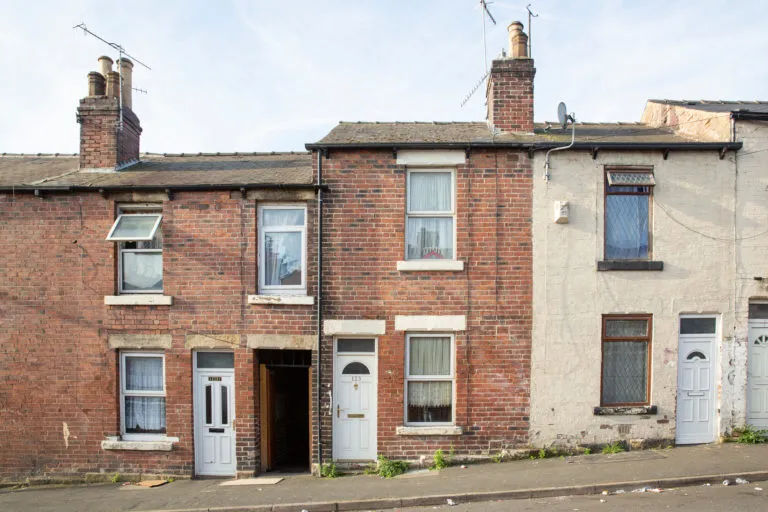Risk of growing homelessness as cuts to discretionary housing payments deepen housing costs crisis
Published: by Charlie Berry

Families already struggling with rising rents, frozen housing allowance, and skyrocketing fuel bills will now face a cut to a vital lifeline against homelessness.
Last week, the government announced that their funding to councils for discretionary housing payments (DHPs) will be £40 million (29%) lower over the next financial year than in this one.
This funding is used to help people claiming benefits who are struggling to afford their rent. DHPs offer short-term help for people who face a shortfall between their housing benefit and their rent. They are a vital homelessness prevention measure.
Councils less able to prevent homelessness
In 2022/23, £100 million will be made available to councils by the Department for Work & Pensions, compared to £140 million in 2021/22.
But this falls well short of what is needed. This latest cut means that DHP funding will be at its lowest level since 2013.
In 2020/21, councils spent a total of £171 million on DHPs, including top ups from their own funding. This was at a time when other protections like the furlough scheme, eviction ban and £20 uplift to Universal Credit were still in place.
With these protections removed and households finances under intense pressure under rising costs we face the likelihood of rising homelessness. Cutting the lifeline of DHP for people who need help to keep a roof over their heads could not come at a worse time.
Rising private rents outpace housing benefit
The shortfalls which DHP is used to plug are growing. In November, the government announced that local housing allowance (LHA), which determines how much housing benefit private renters can claim, will be frozen at 2020 rates for the second year in a row.
As we showed in our previous blog, rents have risen sharply in the last year. In the vast majority of the country (nine out of ten areas in England) the amount private renters can claim for two or three bedroom homes now falls short of the cost of even a modest rental.
The government recognises that DHPs are an important part of the safety net preventing homelessness and aim to mitigate the impact of such shortfalls. Since 2011, the Department for Work and Pensions has expanded funding for DHPs with the explicit intention that councils use these funds to help people who have been affected by welfare reforms. These reforms include the benefit cap, bedroom tax (officially known as the removal of the spare room subsidy) and cuts and freezes to LHA for renters.
Cutting DHPs at a time of growing shortfalls and a cost of living crisis is likely to hasten arrears, evictions and homelessness. It will make it even harder for struggling renters to access this lifeline.
Record numbers affected by welfare reforms
Meanwhile, there are record numbers of people potentially eligible for DHP assistance this year:
- 1.9 million private renters now claim housing benefits, the highest number since it was introduced in the 1980s
- the number of households affected by the benefit cap is 132% higher than before the pandemic.
When combined with a cost of living crisis which Child Poverty Action Group warn will hit those in poverty the hardest, the government should not be reducing the amount of help available for those at risk of homelessness.
Restore the safety net to prevent homelessness
Our research shows DHPs are generally used only as a sticking plaster, rather than a sustainable solution, for the gaps in the welfare safety net.
In December 2020, our freedom of information request to councils revealed:
- 37% of applications for DHPs were rejected in 2019/20
- the majority of awards were for less than six months.
Despite not offering a long-term solution for households, DHPs can be a cost-effective way to prevent homelessness. They provide vital breathing space for families who might otherwise be more quickly evicted.
A large cut to DHP funding at a time of housing cost crisis makes it all the more important that the government makes sure housing benefit is adequate to prevent a wave of homelessness in 2022.
To prevent homelessness escalating this year, local housing allowance must reflect the real cost of rents. And the household benefit cap (which is frozen at 2016 levels) must be abolished so that the predominantly lone-parent families impacted by the cap, including those fleeing domestic abuse, aren’t plunged into homelessness.
We also need a sustainable solution to the housing emergency by prioritising a new generation of social housing. Homes that ordinary families can afford without having to rely on housing benefits or emergency stopgaps to keep a roof over their heads.